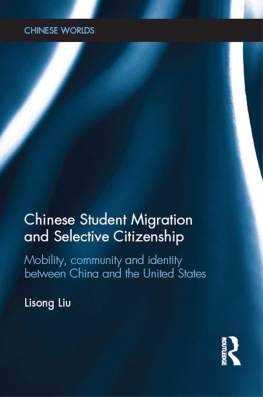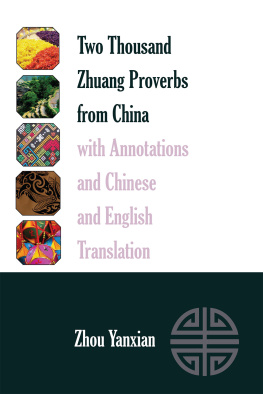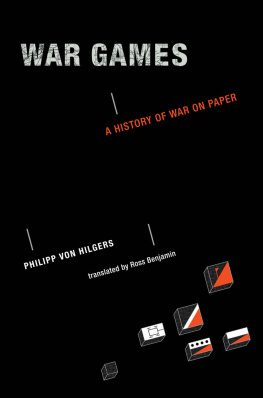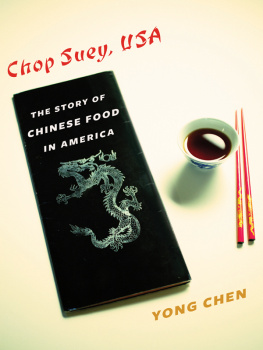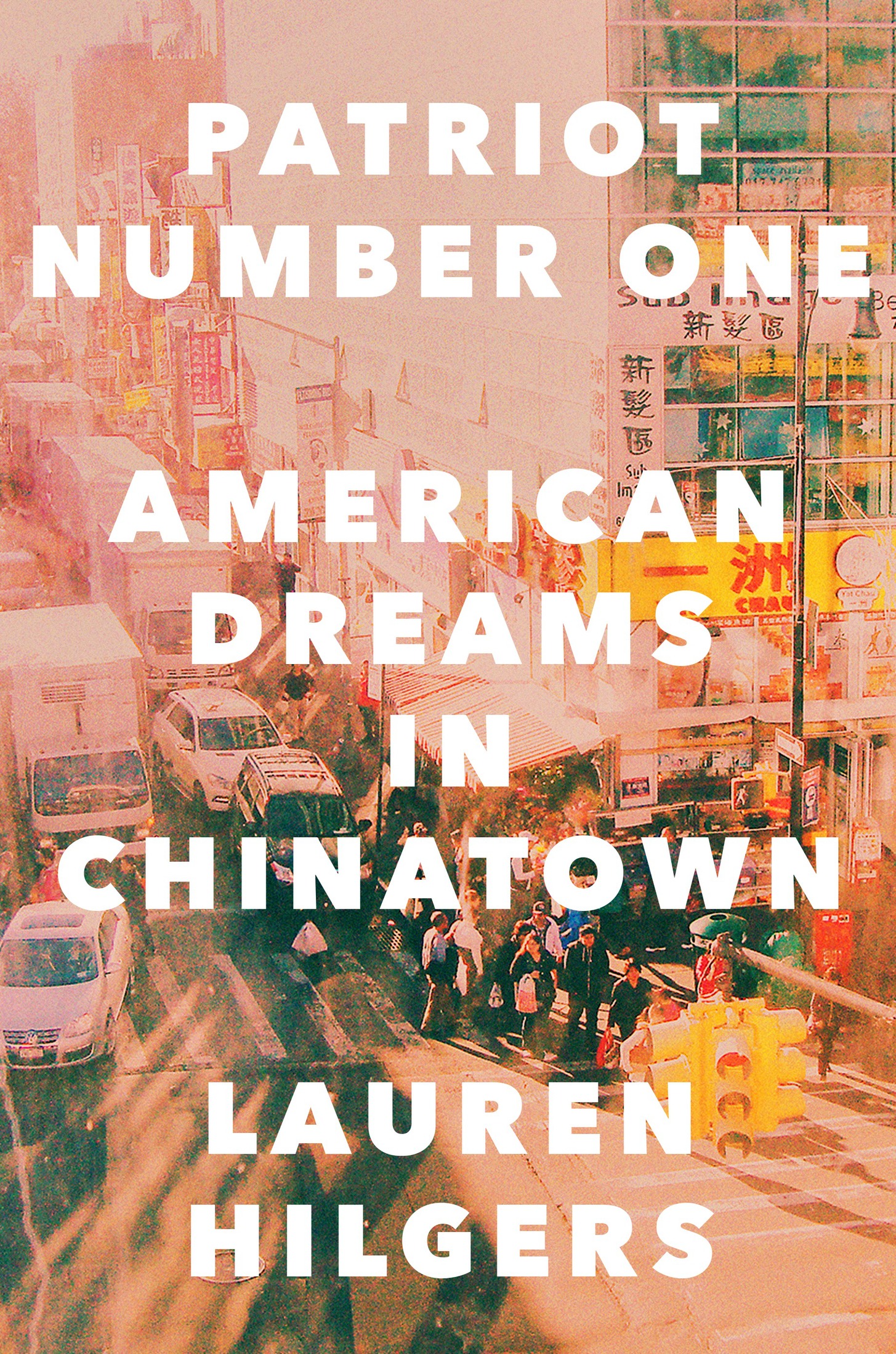
MORE PRAISE FOR PATRIOT NUMBER ONE
Lauren Hilgerss Patriot Number One tells a great story spanning China and America, shedding light on the most complex and tangled relationship between any two nations in the world. Its a great yarn.
JOHN POMFRET, author of Chinese Lessons and The Beautiful Country and the Middle Kingdom
Patriot Number One is an intricate and engaging dual portrait of the struggles of New York Chinese working-class immigrants and the struggles of Chinas village democracy. Its carefully rendered scenes offer a rare depth to worlds we know mostly from headlines.
JENNIFER 8. LEE, author of The Fortune Cookie Chronicles: Adventures in the World of Chinese Food
The humanity, sly humor, and drama of Patriot Number One make it a delight to read. Its intertwined China-and-America narrative is revealing about both countries. This joins the list of books that easily convey larger messages through a vivid focus on the particular.
JAMES FALLOWS, author of Postcards from Tomorrow Square: Reports from China and Our Towns
Patriot Number One brilliantly captures the bittersweet combination of joy, sorrow, and transformation of Chinese immigrants in New York City. Lauren Hilgerss vibrant, compassionate writing transports readers to the gritty streets and vertiginous world of the recently arrived, enabling you to see America with a set of new eyes.
ROB SCHMITZ, author of Street of Eternal Happiness; Shanghai correspondent, NPR
Patriot Number One is a page-turning tale of the sub-world of exiled Chinese dissidents in American society. While Chinese immigration dates back generations, Lauren Hilgers has tapped into the more recent wave of Chinese political exiles and asylum seekersand she astutely tracks their various struggles adjusting to life in America. A fascinating read.
DAVID SHAMBAUGH, author of China Goes Global; professor of political science, George Washington University
In Patriot Number One, Lauren Hilgers expertly weaves history and current events into a compelling human narrative, writing with clarity and compassion about how the outsized dreams of immigrants can collide with an indifferent world. True patriotism, this book shows us, means demanding better of the place that you love.
LAUREN MARKHAM, author of The Far Away Brothers: Two Young Migrants and the Making of an American Life
Lauren Hilgers captures with poignancy and humor the courage of immigrants who reach for the American dream. As we follow the tale of Zhuang and his wife, Little Yan, we stumble along with them, suffering the indignities of those new to this culture and language, buoyed by their successes. The result is a touching and insightful portrait of modern Chinese immigrants and their community.
JEAN KWOK, author of Girl in Translation
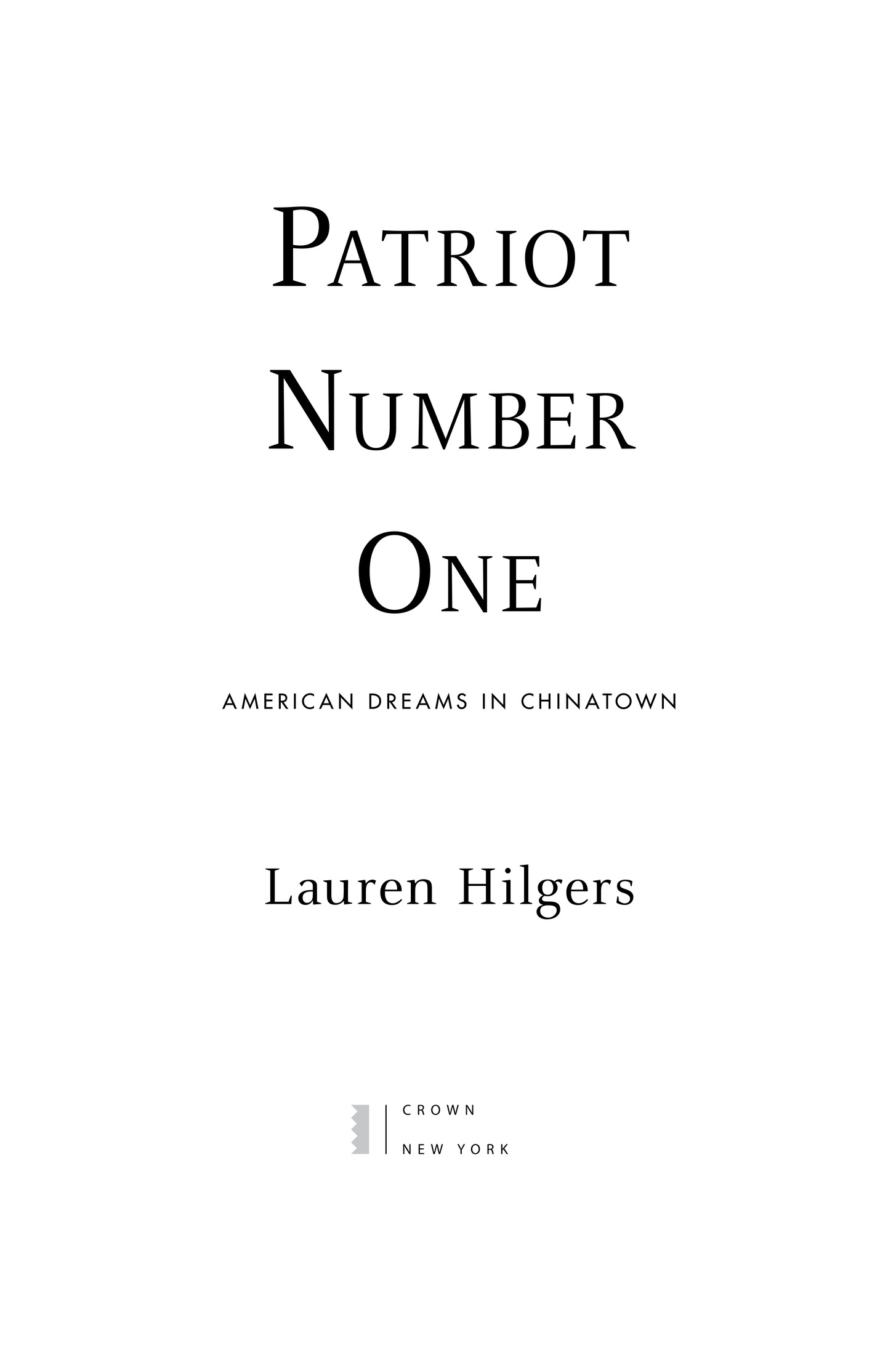
Copyright 2018 by Lauren Hilgers
All rights reserved.
Published in the United States by Crown, an imprint of the Crown Publishing Group, a division of Penguin Random House LLC, New York.
crownpublishing.com
CROWN is a registered trademark and the Crown colophon is a trademark of Penguin Random House LLC.
Library of Congress Cataloging-in-Publication Data is available upon request.
ISBN9780451496133
Ebook ISBN9780451496157
Cover design by Michael Morris
Cover photograph by Juni Xu
v5.2
ep
FOR KAIZHI, AND FOR JUNE
Contents
Chapter 1: Escape
/ Toy
Chapter 2: A Fishermans Son
/ Yf de rzi
Chapter 3: Wukan! Wukan! Revolution
/ Gmng
Chapter 4: In Queens
/ Hunghu Q
Chapter 5: Work
/ Gngzu
Chapter 6: The Chairman
/ Zhx
Chapter 7: Sanctuary
/ Bnnsu
Chapter 8: Wukan! Wukan! A Death
/ Swng
Chapter 9: Little Yan
/ Xio Yn
Chapter 10: Brewing Tea
/ Po Ch
Chapter 11: Fortress Besieged
/ Wichng
Chapter 12: Paper Sons
/ Qyu rzi
Chapter 13: Wukan! Wukan! Land and Committee
/ Tdi h Cnwihu
Chapter 14: The Moon Represents My Heart
/ Yuliang Dibio W de Xn
Chapter 15: Personal Shopping
/ Digu
Chapter 16: Strangers
/ Mshngrn
Chapter 17: Services
/ Fw
Chapter 18: Wukan! Wukan! Rule of Law
/ Fzh
Chapter 19: A Man of Wukan
/ Wkn Rn
Chapter 20: Dissent
/ Yy
Chapter 21: Politics
/ Zhngzh
Chapter 22: Labors
/ Lodong
Chapter 23: Blocking Traffic
/ Lnch
Chapter 24: Simplicity
/ Dnchn
1
Escape
/ Toy
MARCH 2013FEBRUARY 2014
Zhuang Liehong had made three plans to get from his village in China to New York. In the first, the American embassy would simply send someone to pick him up. He envisioned a midnight escapecars waiting in the shadows along the uneven, trash-filled fields on the outskirts of his village. He felt sure, when he considered the plan, that the Americans would be sympathetic to his situation. He was a lover of democracy trapped in a corrupt corner of Guangdong Province. If the plan were to work, it would have to be secret. His friends would wake the next morning to find him vanished. By the time the news spread, he would be on a plane, heading toward a new life.
In a second plan, Zhuang would flee by sea. He had learned that Guam, a mere two thousand miles from the Guangdong coastline, was U.S. territory. This plan made it closer to execution: he went to work on a friends fishing boat in Wukan Bay in preparationten grueling hours on a wooden plank boat, fully exposed to the sunand purchased slightly too much fuel each time, stockpiling it slowly, so no one would notice. He planned to buy two motors. Just in case one died, he said. I would use one some of the time and then switch them. Sometimes I would use them both, and vrrrmm! He would wait until the two months of the year when the intervening stretch of ocean was at its calmest, the swells low and rolling, the water undisturbed by typhoons. Then he would take a tiny boat out into the expanse of the South China Sea. He estimated the trip would take about ten days. He could make it, if he had to.
Zhuang was a man of Wukan Village, a proud former village leader on the ragged outskirts of Guangdong Provinces manufacturing boom. He was on the verge of thirty, stocky and compact, meticulous about his appearance but always slightly out of style. His crooked teeth gave away a childhood spent in poverty, but he was not self-conscious about them. He grinned while greeting people on the street, pouring tea in his tea shop, or singing at the local KTV. He smiled relentlessly in the face of danger or embarrassment. He suffered from the occasional lapse in reading social cues and fought it with volume, warmth, and a strong handshake.
During the summer of 2013, paranoia overtook Zhuangs home village, and he recognized the feeling of trouble on the horizon. The shadowy forces of the county-level governmentpeople he had rebelled against a few years beforewere returning to Wukan. His friends were sure that their phones had been tapped by local security forces, the lackeys of corrupt officials. A propaganda official had taken up residence in a local school. Zhuang took the extra precaution of hiding his cell phone in the back of his tea shop whenever he discussed politics. He had heard rumors that government spies could turn them on remotely and listen in.


